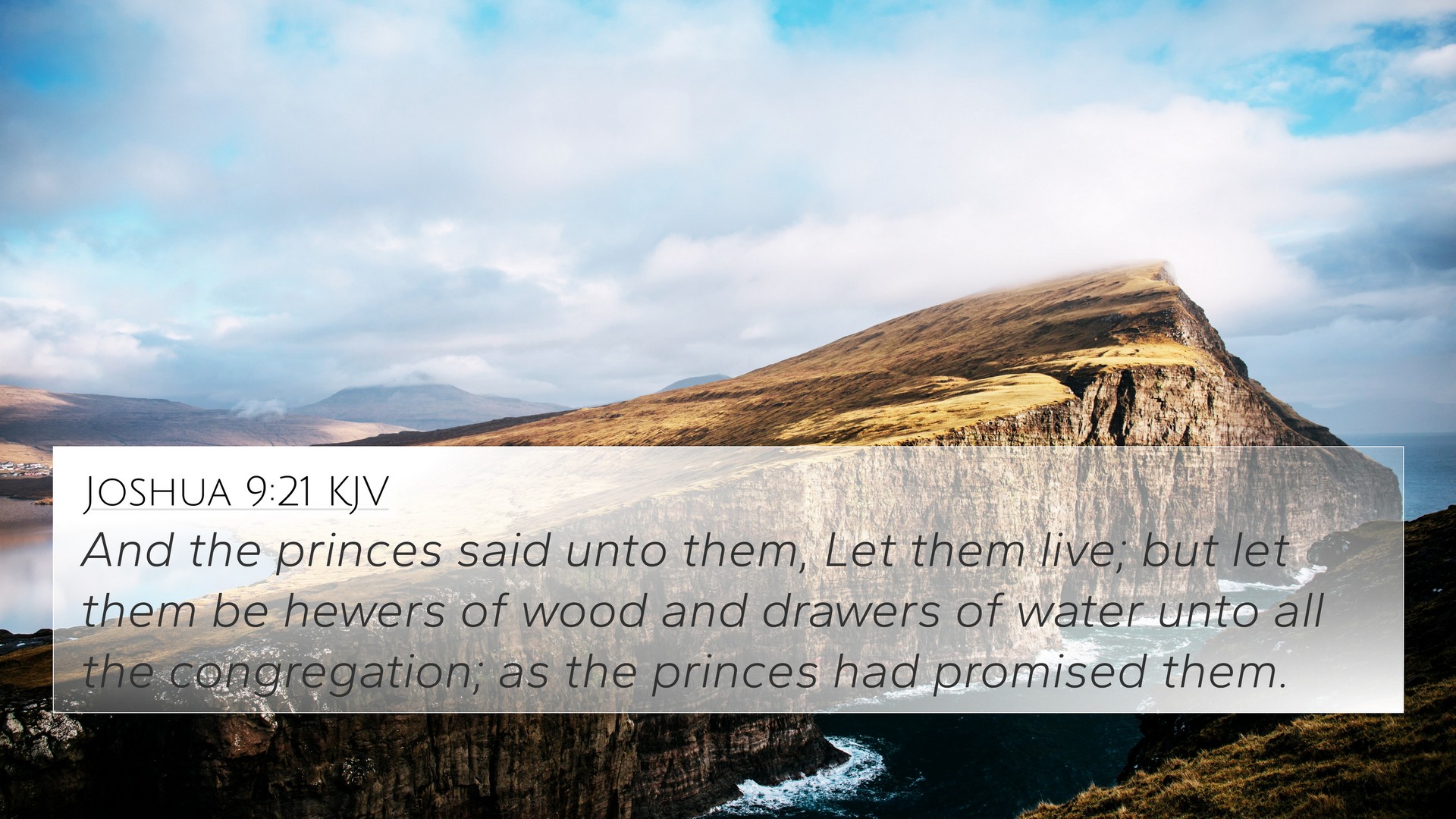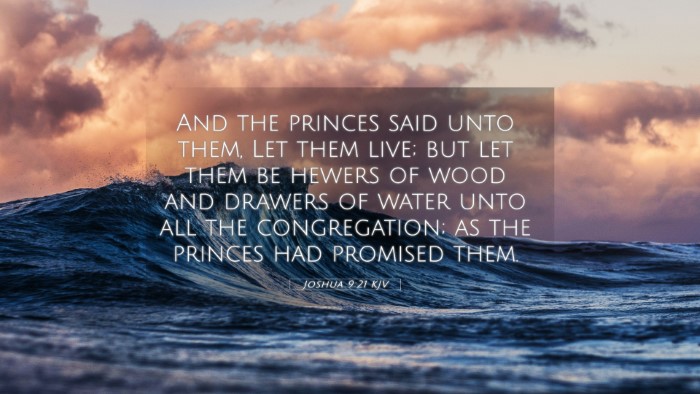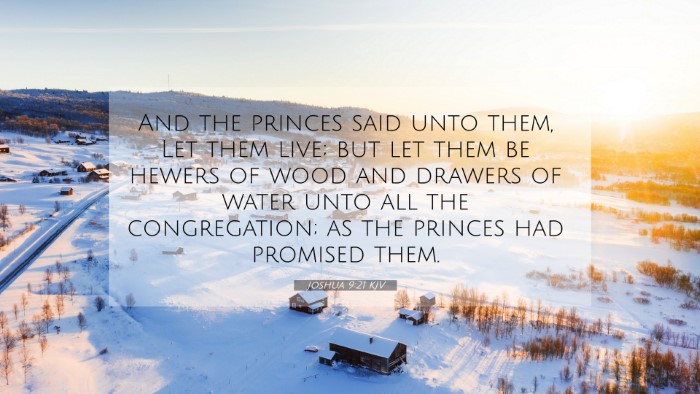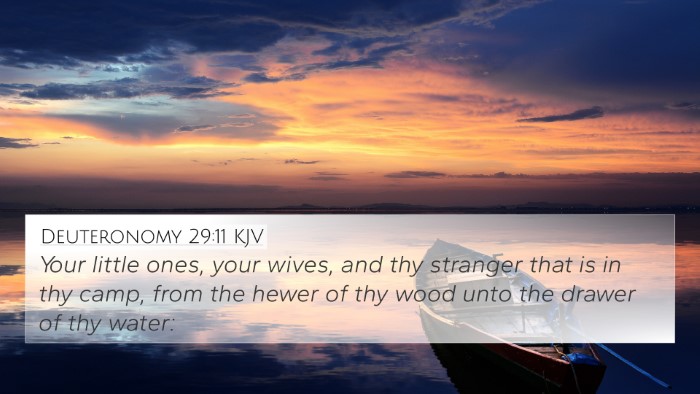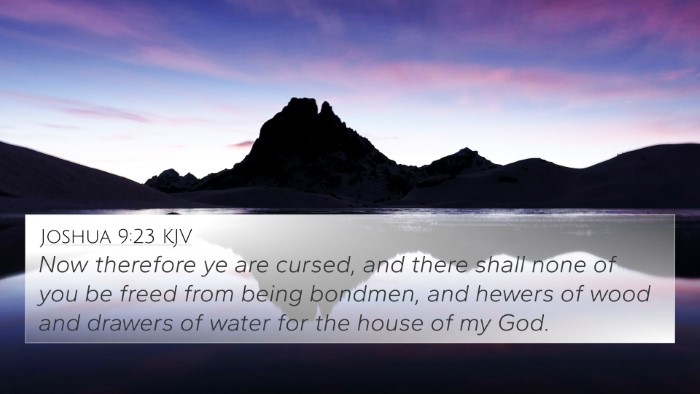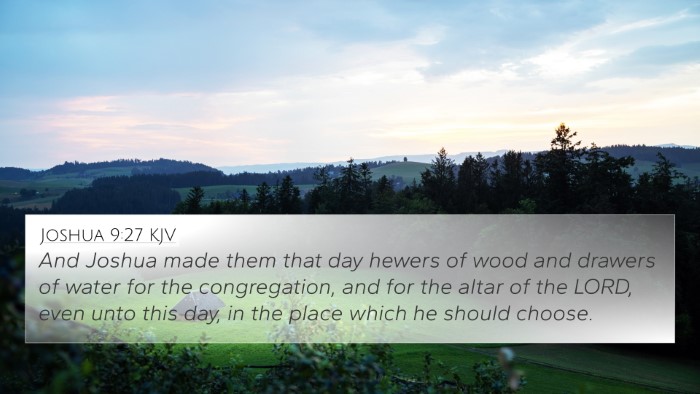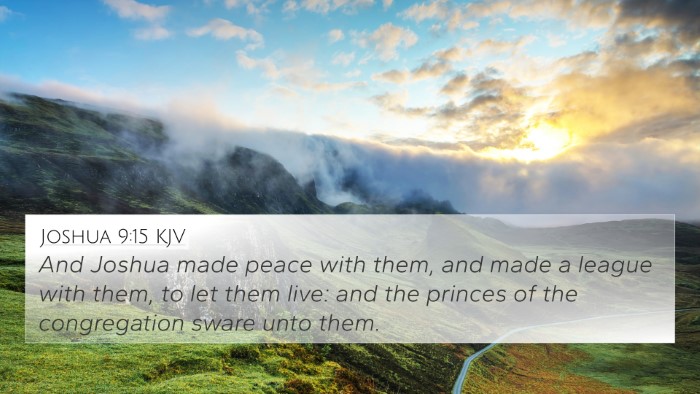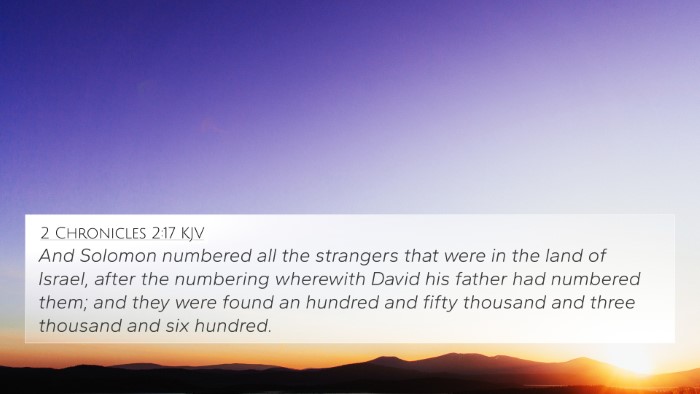Understanding Joshua 9:21
Joshua 9:21 states: "And the princes said unto them, Let them live; but let them be hewers of wood and drawers of water unto all the congregation; as the princes had promised them." This verse reflects the decisions made by the leaders of Israel regarding the Gibeonites, who deceitfully sought a covenant with Israel. To better comprehend this verse, we will explore combined insights from public domain commentaries such as those by Matthew Henry, Albert Barnes, and Adam Clarke, focusing on its themes, contextual meanings, and broader biblical connections.
Contextual Background
The Gibeonites were inhabitants of Canaan who, fearing the Israelites’ conquests, devised a plan to appear as travelers from a distant land. They sought refuge with the Israelites by falsely claiming to be from afar, which led to a covenant being made in haste. This verse occurs after the Gibeonites’ deception is revealed but signifies a critical decision made by the Israelite leaders to honor their covenant rather than annihilate them.
Commentary Insights
-
Matthew Henry: Henry emphasizes the importance of fulfilling promises, even when made under duress. He discusses the principles of mercy and justice and notes that the leaders chose to spare the Gibeonites, showcasing God's provision for the preservation of life.
-
Albert Barnes: Barnes notes that the decision to appoint the Gibeonites as "hewlers of wood and drawers of water" was a practical solution that allowed them to serve the community while also fulfilling the commitment made by the leaders. His commentary illustrates how this role aligns with the Israelite law concerning servitude and the treatment of foreigners.
-
Adam Clarke: Clarke reflects on the historical context, indicating that the Gibeonites were allowed to serve in a menial capacity, thus fulfilling their role within the Israelite camp. He describes the symbolic nature of their servitude and its implications on how the Israelites viewed their relationship with foreign nations.
Thematic Connections
Joshua 9:21 embodies several themes relevant to biblical teachings:
- Commitment to Promises: The verse illustrates the weight of promises and the moral imperative to keep one's word.
- Mercy and Judgment: While justice might have dictated the death of the Gibeonites, the leaders chose mercy instead.
- Servitude and Community Role: The appointment of the Gibeonites to serve reflects the dynamics of community and cooperation in ancient Israel.
Cross-References
A comprehensive understanding of Joshua 9:21 can be enriched by examining related Bible verses. Here are some cross-references:
- Exodus 23:32-33: Instructions regarding alliances with neighboring nations.
- Deuteronomy 7:2-3: God's command to eliminate certain nations in Canaan.
- Numbers 30:2: The importance of keeping vows made to God or others.
- Psalms 15:4: Attributes of a righteous person who keeps their promises.
- 2 Corinthians 1:20: The faithfulness of God's promises to believers.
- Jeremiah 34:8-10: Discussion of covenant and servitude.
- Matthew 5:37: Teaching on honesty and the significance of one's word.
Inter-Biblical Reflections
The narrative surrounding Joshua 9:21 engages in inter-biblical dialogue, connecting themes from the Old Testament to New Testament teachings. For instance, the notion of fulfilling commitments resonates with believers today through biblical teachings on integrity and relationships within the community of faith.
Conclusion
The exploration of Joshua 9:21 reveals profound insights into biblical principles of promise-keeping, mercy, and the role of individuals within a community. By engaging in a comparative Bible verse analysis, believers can identify thematic connections and cross-references that enrich their understanding and application of biblical teachings in daily life. Whether you are seeking tools for Bible cross-referencing or exploring connections between Bible verses, this verse is foundational in understanding God's covenantal faithfulness and the nature of human relationships within the faith community.
